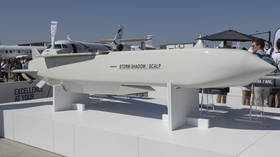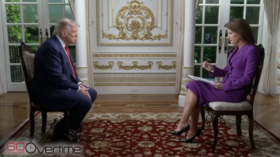Congress derails Obama plans to arm Syrian rebels

Though the Obama administration has authorized military aid to the rebel opposition currently engaged in a civil war with the government of Bashar Assad, it now appears that the US Congress has essentially blocked that move over terrorism fears.
Members of both the House and Senate intelligence committees have
moved to enact stringent restrictions on funding the Syrian
rebels, a move sufficient to prevent the White House from
delivering on arms shipments according to sources who spoke with
The Hill.
In mid-June, following allegations from the White House that the
Assad government had used chemical weapons against opposition
forces moving to depose him, the Obama administration authorized
arms shipments in a marked escalation of US involvement in the
region.
"This is going to be different
in both scope and scale in terms of what we are
providing," said Ben Rhodes, Obama's deputy national
security adviser at the time.
Now, according to sources familiar with committee activity,
restrictions on that increased aid to Syria’s opposition may have
essentially stopped the administration in its tracks.
According to The Hill, lawmakers moved to block the military aid
out of fears that weapons would fall into the hands of terrorist
groups. US analysts are in particular concerned over the
strengthening of the Syrian al-Qaeda-affiliated group Jabhat
al-Nusra, also known as the al-Nusra Front.
Though the Obama administration had long stated that the use of
chemical weapons by Assad’s government constituted a “red line,” it seems that lawmakers
on the intelligence committees are more worried about the
regional threat posed by Islamist elements now engaged against
Syrian government forces.

Jabhat al-Nusra is thought to control as many as 10,000
supporters within Syria. Meanwhile, it is also believed that Iran
is currently training Hezbollah fighters within Syria, in growing
tension against the Sunni-backed al-Qaeda affiliates of the
Syrian opposition forces.
“Whatever we do, we have to
make sure we do it right,” said Rep. Dutch Ruppersberger,
the ranking member of the House Intelligence Committee, Tuesday.
“If we are going to arm, we
have to make sure we have control of what arms are out there and
how people are trained to use those arms so they don’t fall into
the hands of our enemy al-Qaeda,” added Ruppersberger.
Since the mid-June announcement that the Obama administration
would seek to funnel military aid to Syria’s insurgency, it had
set out to sell that plan to members of Congress. Both Secretary
of State John Kerry and Vice President Joe Biden briefed the
intelligence panels in June.
Despite efforts by the White House to increase momentum for its
new Syria policy, support appeared to be splintered on Tuesday,
even amongst members of Congress who were in favor of arming the
opposition.
“It’s not clear to me that the
administration has a workable policy,” said Senator Susan
Collins (R-Maine), a member of the Intelligence Committee.
Beyond the key House and Senate intelligence committees, which
hold funding oversight, Senator Bob Corker (R-Tenn.), a ranking
member of the Foreign Relations Committee, accused the Obama
administration of covertly pushing military aid behind the closed
doors of the Intelligence Committee.
“They should come and talk
about this openly,” Corker told reporters Tuesday.
“It puts the Intelligence
Committee in a very awkward place. All of a sudden, they own
it,” he added.
According to The Hill, though Obama administration officials
stopped just shy of saying efforts to arm the Syrian opposition
had been thwarted, congressional opposition was not likely to
make it any easier.
The Associated Press had first reported last month that the
congressional intelligence panels had rejected the
administration’s initial plans to arm Syria’s rebels.














